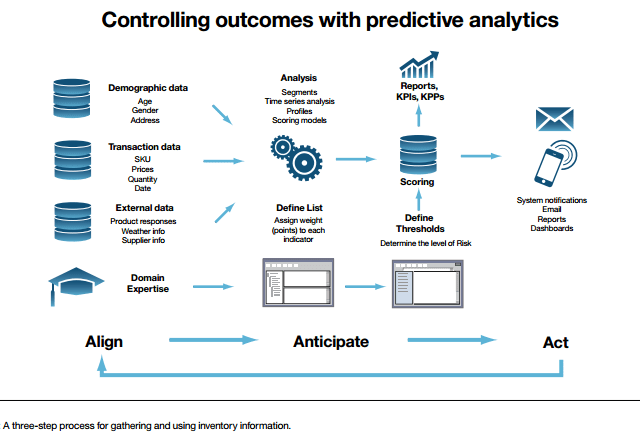Undeniably, the most crucial role of a retail company is the final goods’ distribution and logistics. Logistics networks need to be more flexible and universal than ever so that the final goods reach the end consumers at the right time. Logistics has an unmatched role to play in the performance of a retail business.
As retailers transform their omnichannel strategy to create memorable and lasting experiences for consumers, their logistics must be ready to pivot as well. From here, blooms the concept of omnichannel logistics. The next generation of retailers requires logistics networks to be proficient in fulfilling customers’ needs in all channels.
What is Omnichannel Logistics?
Today, eCommerce brands prefer to target as many customers as possible. Users expect fast delivery of products with control over each step of the process. Logistics providers need to maintain transparency, and this is what an omnichannel strategy does best. Logistics is essentially the core of your retail business. It is a contact medium between the company and its customers that manage vendors’ flow from the vendors to the end-users.
An omnichannel approach in logistics allows customers to connect with the companies via multiple mediums, regardless of its channel. It’s different from traditional activities that have focused on using separate channels. The omnichannel logistics is based on a highly-personalized approach that requires integration with procurement, transportation, IT, and sales & marketing. It builds a foundation for a company to deliver the most seamless experience to fulfill orders that come through various channels.
No matter which side a company logistics is headed, it’s easier to apply a new omnichannel logistics strategy by partnering with trusted resources such as 3PLs to create a fully integrated and seamless customer experience. With consumers marking more emphasis on personalization, companies must explore new ways to leverage omnichannel logistics to drive success. Here are three ways retailers can embrace mastering omnichannel strategy for logistics.
The Key to a Strong Omnichannel Strategy
We’ve seen how vital a logistics strategy can be for a retail business. But in the current scenario, omnichannel logistics strategy essentially seems to lead from the rest of the pack.

Predictive Analysis of Inventory Items
Omnichannel strategy in logistics is about providing consistent experiences to customers and vendors across the whole gamut of possible mediums. Retailers must let their customers know their inventory status, whether it’s at a warehouse or distribution location.
To satisfy customer needs, companies need to implement the omnichannel strategy in the right way. For example, a customer buys a product online and finds it out-of-stock at the distribution center; you need to deliver merchandise to the customer from a store location quickly. The omnichannel strategy uses inventory visibility to accurately forecast available products and future demand to plan supply chain activities accordingly.
In fact, it gives you a single view of inventory across all channels and locations that can ship online orders without taking physical possession of the product. Inventory, order management, and logistics systems are synced in a way that online orders prompt directly to a vendor ensuring that customers have the item in their hand the same day or the next day. To implement this omnichannel strategy, businesses must follow a seamless order fulfillment process by using warehouse execution software and other automation technologies.
Accurate Forecasting in Logistics
If you think about your own retail business, keeping the right amount of product in stock helps you respond consistently to customers. Having accurate forecasting in logistics means that retailers can predict order volumes and inventory requirements to satisfy customer needs. Not having an omnichannel strategy in place for logistics forecasting means paying unnecessarily high storage and inventory management costs.
Forecasting is a vital component of the omnichannel strategy, helping companies fulfill orders on time, avoid unnecessary inventory expenses, and plan for price fluctuations. There are three types of forecasting. The first one is supply chain forecasting that looks at data about your suppliers. Demand forecasting analyzes how much product your customers are likely to buy during a particular month, quarter, or week. Price forecasting analyzes data related to supply and demand related to a project and how it will affect prices.
Accurate forecasting in logistics means creating a more accurate picture of your current and existing orders and demands, which allows a business operation to make smarter decisions when it comes to replenishment. With historical data in hand, it helps improve logistics and customer experiences.
Optimizing Return Management
The returns process can make or break an omnichannel strategy. The in-store returns can be an opportunity for retailers to make more sales. The return management system should be easy to implement and must be clearly posted on a website as over 63% of consumers read the online products return policy before making an online purchase. Merchants should consider including a return policy page on their ecommerce site in checkout areas of the retail store.
Some of the other return related issues can be simplified using an advanced order management solution that is convenient to use and cost-effective. It is better to include a return label in outgoing shipments, implement an in-store return facility, and to work with carriers to pick up a return. This may optimize the fulfillment decisions on how and where products should be returned to maximize profits and service.
Omnichannel means giving your customers the ability to return a product with ease and flexibility. There are multiple ways to optimize return management. The best way is to start investing in technology that integrates the return management process into all business areas. With an integrated returns management solution in place, retailers can improve transparency in their return operations.
Final Words
An omnichannel strategy in logistics brings benefits to both consumers and businesses. The more your attention turns to omnichannel retailing, the more you can do to align your logistics and shipping strategy according to your customers’ needs and preferences. The more likely it is that your business will achieve omnichannel success and attract more consumers by using various channels.
Stylish workplace with computer -DepositPhotos


